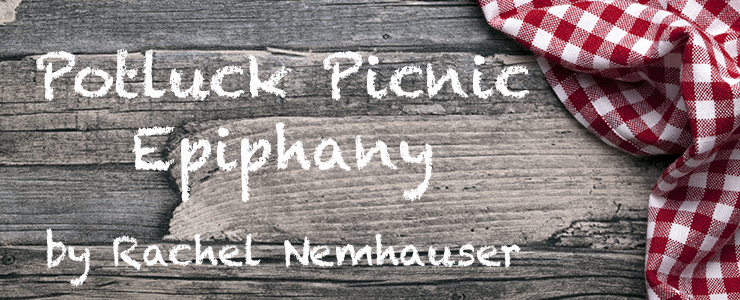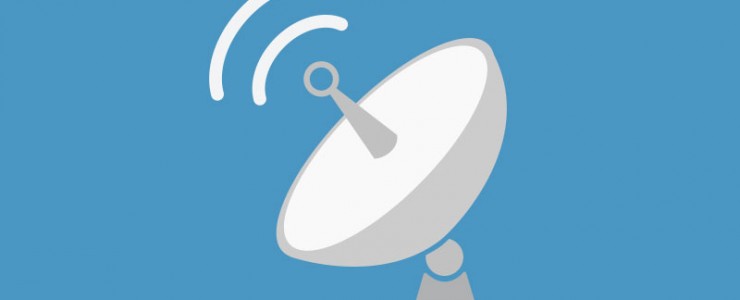I have a confession to make, and it isn’t something I’m proud of. My son Nate is almost twelve years old, and I still hand-feed him most of his food each day. I prepare his meals, I lay them out on a plate in a visually appealing manner, I carry them to him, and I slowly feed him bite by bite.
Don’t get me wrong—the ritual is lovely. We usually snuggle together on the couch, often under a cozy blanket, and watch Scooby Doo while I raise forkfuls of dinner to his opened lips. I mostly enjoy our time together, but I’m still ashamed that it’s happening.
Although he has a tremor, Nate is physically (if not messily) able to feed himself. In fact, when he’s at school or with his babysitter I’m assured he eats cooperatively and independently. He’s also not a picky eater, and when he’s hungry he’ll eat pretty much anything. He’s always open to trying new things and loves healthy, home-cooked food.
But still, I feed him by hand.
Nate was always plump and portly guy until he was 3 1/2 and began taking a medication with appetite suppression as a known side effect. He rapidly evolved from a stocky, round-bellied toddler to a spindly, skin and bones preschooler, and we spent the next several years struggling to help him gain weight. While he was usually hungry when he woke up, lunch and dinner could stretch on for hours as we’d cajole, bribe, beg, force, and plead for him to eat. Each swallowed bite became a hard-won victory and every completed meal a blessed relief.
We consulted with nutritionists and therapists. We forced Nate to sit at the dining room table and feed himself. We used timers, behavior plans, calorie boosters and protein shakes. We cheered with ridiculous levels of enthusiasm when he finished his vegetables. We spent many years learning that a largely non-verbal child with Oppositional Defiance Disorder who isn’t very hungry will learn an entire vocabulary of words just to tell his parents that he doesn’t want to eat. Nate continued to get thinner, and his doctors began to worry. We dreaded mealtimes. My frustration and stress were through the roof, and dinners at our house were miserable.
Nate continued to get thinner, and his doctors began to worry. We dreaded mealtimes. My frustration and stress were through the roof, and dinners at our house were miserable.
Knowing all that, and knowing Nate’s general stubbornness, it’s probably not hard to imagine how we have found ourselves approaching his 12th birthday and still hand-feeding Nate most of his meals in front of the television. He’s slowly put on weight, eating isn’t a battle, mealtime isn’t torture, and the stress on the rest of our family is gone. We’ve eliminated a few daily battles, and the doctors are content. I feel like I’m doing my best, and for the most part the problem is solved.
Except that I know he should be feeding himself, and my mom-guilt is telling me I’m holding him back. The nagging voice in my head is reminding me that every time I feed him myself I’m sending him (and everyone else) a message that I don’t think he’s capable of more. It’s pointing out that if he can’t eat on his own then he can’t live on his own, that I’m enabling him and could be doing better. It’s admonishing my over-nurturing, and convincing me this is something to “confess.”
Okay. So perhaps the problem is not completely solved. I’m distressed and ashamed of something I do two to three times every single day and that feels terrible. I’m critical of my own parenting and I’m disappointed in my approach. I avoid feeding Nate in public, and I try to keep our feeding routines a secret. I’m just plain embarrassed.
But then I went out for dinner yesterday, and something changed.
I attended an annual potluck picnic that was heavily attended by people with disabilities and their families, and I had a great time. There was laughter, friendship, running children weaving between the tables, and over 100 people sharing a meal together.
Scattered among the crowd, in moments so intimate that it was almost as if no one else was in the room, were moms and dads attentively hand feeding their sons and daughters of all ages. I saw hot dogs held to lips, cups of lemonade gently tipped, and chins dabbed softly with napkins. I saw a light touch on a cheek to remind a young man that another bite was on its way. I saw reminders to chew slowly and laughter at errant frosting on the tip of a nose.
Scattered among the crowd, in moments so intimate that it was almost as if no one else was in the room, were moms and dads attentively hand feeding their sons and daughters of all ages.
From where I was sitting there wasn’t an enabler or lazy parent in sight, and I didn’t notice a single mom or dad who appeared to be raising an under-prepared child. Instead I saw dedication and tenderness and a love so powerful that it gives a parent the patience to hand-feed their child when their child needs it, for as many meals and as many years as that child needs it.
I saw parents exemplifying right in front of me the type of mom I strive to be every day—gentle and loving and patient and attentive—and I felt the cinch of my guilt loosen. As I watched those other families, I was able to recognize that when I hand-feed Nate I, too, am being the gentle and loving and patient and attentive parent I strive to be. There’s always more I can be doing; but if every bite I give him conveys my love, then I’m doing all right.
I still hope one day Nate will consistently, cooperatively and even enthusiastically feed himself. Like most other things, I’m guessing he’ll decide when he’s ready and we’ll take it on together. For now, however, yesterday’s picnic has helped me see our eating routine for what it really is: a gesture of the love and devotion I feel towards a person who, no matter how grown up he gets, will always be my baby.





